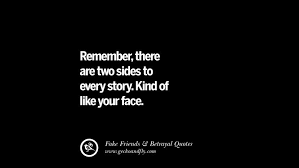The Phenomenon of Older Women with Younger Men: Exploring Relationships Beyond Age Stereotypes

In contemporary society, the dynamics of romantic relationships have evolved significantly, challenging traditional norms and stereotypes. One such evolving trend is the increasing prevalence and acceptance of relationships where older women are involved with younger men. This phenomenon, often referred to as “cougar relationships” or “age-gap relationships,” has garnered attention in popular culture, academia, and everyday discourse. This article delves into the complexities, motivations, challenges, and societal perceptions surrounding these relationships.
Understanding Age-Gap Relationships
Age-gap relationships, particularly those where the woman is older, have historically been scrutinized and subject to societal judgment. The term “cougar,” typically used to describe older women who pursue younger men, often carries both positive and negative connotations. On one hand, it may imply empowerment, confidence, and breaking away from societal expectations. On the other hand, it can also evoke stereotypes of predatory behavior or superficiality.
Motivations and Dynamics
- Emotional Fulfillment: Many women in such relationships cite emotional connection and compatibility as primary motivators. They may find younger partners more open-minded, enthusiastic, and supportive, which contributes to a fulfilling relationship.
- Physical Attraction: Physical chemistry and sexual compatibility are essential factors in any relationship. Some older women find younger men physically appealing and enjoy the vitality and energy they bring to the partnership.
- Personal Growth: Relationships with younger partners can be transformative, offering opportunities for personal growth, new experiences, and rediscovery of oneself.
- Social Dynamics: Shifts in societal norms have made it more acceptable for women to date younger men. This cultural shift reflects broader changes in gender roles and expectations.
Challenges and Prejudices
Despite increasing acceptance, age-gap relationships still face challenges and prejudices:
- Social Stigma: Stereotypes about “cougars” and younger men often perpetuate judgment and misunderstanding, affecting how these couples are perceived in their communities and social circles.
- Family Reactions: Families may struggle to accept such relationships, concerned about societal perceptions, compatibility, or future implications, such as children or financial stability.
- Life Stage Differences: Differences in life experiences, goals, and priorities can create challenges in communication and decision-making within the relationship.
- Long-term Considerations: Concerns about long-term compatibility, particularly regarding health, retirement, and lifestyle choices, can be more pronounced due to age disparities.
Societal Perspectives and Cultural Shifts
The perception of age-gap relationships varies across cultures and generations:
- Generational Attitudes: Younger generations tend to be more accepting of diverse relationship dynamics, viewing love and companionship as priorities over traditional age norms.
- Cultural Variations: Cultural attitudes towards age, gender roles, and relationships significantly influence acceptance and prevalence of age-gap partnerships.
- Media and Representation: Increased media representation of age-gap relationships in films, television, and literature has contributed to normalization and acceptance.
Psychological and Emotional Dimensions
Exploring the psychological aspects of older women choosing younger partners reveals:
- Self-esteem and Confidence: Older women may find validation and empowerment in relationships where they are desired and valued for who they are.
- Identity and Ageing: Relationships with younger partners can challenge stereotypes about ageing, allowing women to redefine their identities beyond societal expectations.
- Mutual Growth: Both partners often experience personal growth and learning from each other’s perspectives, challenging stereotypes about power dynamics in relationships.
Case Studies and Personal Narratives
Sharing real-life stories and experiences of couples in age-gap relationships provides insight into:
- Navigating Challenges: How couples overcome societal judgment, family objections, and personal insecurities to build meaningful relationships.
- Success Factors: Factors that contribute to the longevity and happiness of age-gap relationships, such as mutual respect, communication, and shared interests.
- Learning from Diversity: How cultural, racial, and socioeconomic backgrounds influence the dynamics and challenges within age-gap relationships.
Conclusion
The evolving landscape of relationships reflects broader shifts in societal norms, challenging age-old stereotypes and expectations. Older women with younger men embody a progressive approach to love and partnership, emphasizing connection, mutual respect, and personal growth. While challenges and prejudices persist, these relationships highlight the complexities and diversity of human connection in the modern age. By exploring motivations, challenges, and societal perspectives, we gain a deeper understanding of how age-gap relationships contribute to individual happiness and societal evolution.
In conclusion, the phenomenon of older women with younger men serves as a compelling narrative of love, empowerment, and societal change, transcending traditional boundaries and stereotypes. As perceptions continue to evolve, these relationships remind us of the complexity and richness of human connections, irrespective of age or societal expectations.
3.5





